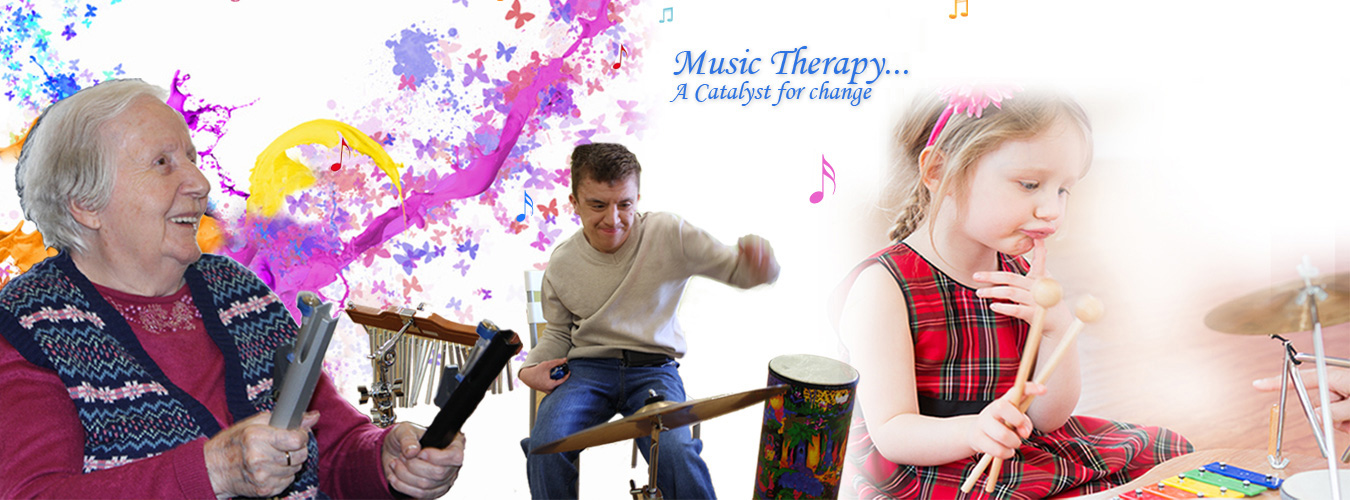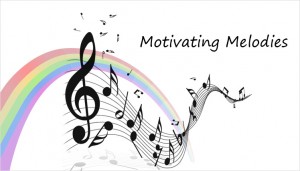At ‘Harmony is’ we offer music therapy services both at our studio and in a variety of locations in the community. Based in Milton, Ontario, we service both Halton and Peel regions, including Milton, Acton, Georgetown, Brampton, Mississauga, Oakville and Burlington. Our accredited music therapists work with individuals or groups to target non-musical goals through a motivating musical environment. We specialize in work with children, adults and seniors with varying abilities.
We offer both individual (1:1) music therapy sessions and group sessions of 6 to 8 members.
Register Now for our New Music Therapy Group!
Motivating Melodies
Motivating Melodies is a Music Therapy group tailored to children with Down Syndrome or speech/motor delays. Children 5 yrs and under, (with their parents) will learn together in an interactive environment facilitated by a Music Therapist. The group will focus on age appropriate musical activities to develop social and developmental communication/gross & fine motor skills in consultation with a Speech/Language Pathologist (SLP). Parents will receive resources to further the learning in the home environment.
6 week program
Introductory Cost: TBA
| DAY | TIME | STARTS |
|---|---|---|
| TBA | TBA | 2015 |
| TBA | TBA | 2015 |
What is Music Therapy?
[“Read more »”, “« Hide”, “invisible”]
Music therapy is the skillful use of music and musical elements by an accredited music therapist to promote, maintain and restore mental, physical, social, emotional, and spiritual health. Music has non-verbal, creative, structural, and emotional qualities. These are used in the therapeutic relationship to facilitate contact, interaction, self-awareness, learning, self-expression, communication, and personal development.
Canadian Association for Music Therapy, May 6, 1994
Music therapists offer service to many of the following community partners:
Contact us to inquire about having a music therapist provide service to your program [email protected]
- Community Living Programs
- Schools
- Long Term Care Facilities
- Adult Day Programs
- Hospitals
- Daycare centres
- Camps
- Group Homes
- Private Practices (such as Speech/Language Pathologists, Occupational Therapists, Physiotherapists, Health and Wellness Groups)
Music therapy goals can include: (but are not limited to:)
- Promoting communication skills (articulation, oral motor skills, vocabulary development, rhythm/intonation of speech etc)
- Promoting social skills (eye contact, sharing, turn-taking, appropriate social response)
- Promoting emotional expression
- Promoting relaxation
- Promoting distraction from pain
- Promoting/maintaing
- Promoting gross/fine motor skills
Music Therapist frequently work with individuals who may present with signs of:
- Dementia
- Alzheimers
- Autism spectrum disorder
- Down’s syndrome
- Palliative care
- Medically fragile
- Rhetts syndrome
- Developmental delay
- Dual diagnosis
- Speech delay
- Physical disability
- Recovering from stroke
What training is required to become a Music Therapist?
[“Read more »”, “« Hide”, “invisible”]
How is music used therapeutically?
[“Read more »”, “« Hide”, “invisible”]
- Helps people with speech impairments improve articulation, rhythm and breath control.
- Helps people with dementia to remember significant events in their lives
- Can be used to assist with task analysis and sequencing
- Playing instruments
- Improves gross and fine motor coordination
- Helps develop self-reliance, self-esteem and self-discipline
- Enhances social interaction
- Provides an immediate success experience
Rhythmic movement
- Facilitates range of motion, mobility, agility, balance, co-ordination
- Rhythm increases motivation, interest and enjoyment in tasks
Improvising
- Offers creative, non verbal means of expressing feelings
- Offers an opportunity to make choices and work with structure in a creative way
- Provides non-verbal social experience by practicing leadership and turn taking skills
Composing and Song writing
- Develops cooperative learning
- Facilitates sharing of feelings, ideas and experiences
- Promotes confidence and self-esteem
Listening
- Develops cognitive skills including attention and memory
- Stimulates thoughts, images and feelings which can be further examined and discussed
How is music therapy provided to the community?
[“Read more »”, “« Hide”, “invisible”]




